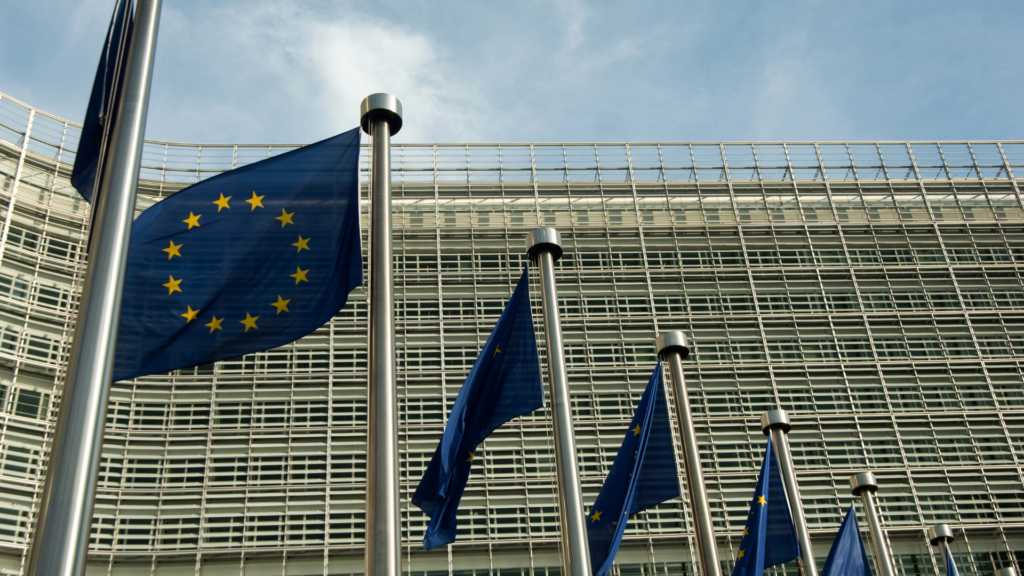BRUSSELS BEHIND THE SCENES
Weekly analysis and untold stories
With SAM MORGAN
A year of moments
2022 was yet another year of perma-crisis and reactive decisionmaking by governments. Next year is unlikely to be any different and although we cannot predict unknown unknowns, we can look ahead to some big moments already on the cards for Europe.
BRUSSELS BEHIND THE SCENES is a weekly newsletter which brings the untold stories about the characters driving the policies affecting our lives. Analysis not found anywhere else, Sam Morgan helps you make sense of what is happening in Brussels. If you want to receive Brussels behind the scenes straight to your inbox every week, subscribe to the newsletter here.
Green Deal D-Day
The EU has built its raison d’etre around its flagship policy, the Green Deal, the point of which is to decarbonise the bloc’s economy enough so that its climate neutrality goal for 2050 is actually achievable.
All the pieces of the Green Deal needed to pull off this mega feat have slowly been put into place by the European Commission, Council and Parliament. The job still is not done but talks on the various regulations and directives might wrap up next year.
That is the easy part. Next comes the implementation of renewable energy targets, vehicle pollution standards, building renovation goals, digitalising power grids, constructing cross-border cable and much more besides.
Many of these targets have to be met by 2030 so the work of planning, building and integrating new energy sources has to at least start during the course of 2023. The ticking clock necessitates it.
Vladimir Putin’s actions in Ukraine also make next year a definitive 12 months for the climate. We are still only experiencing the start of the knock-on effects of his war, so if energy saving policies do not bite hard enough, there will be trouble.
How to fund it
When the coronavirus pandemic brought the world to a standstill, European governments did the unthinkable and agreed to allow the EU to borrow €800 billion to fund recovery programmes.
That money is still being distributed through loans and grants — to everyone but Hungary of course — and 2023 will see many more billions approved and cashed out by the Commission. We might see the first tangible results of that spent money as well.
But €800 billion is not much money, in the grand scheme of things. Inflation, energy costs, retooling the economy to strip fossil fuels out of its architecture and other necessary expenditures do not come cheap.
There is also the not insignificant problem of global competition between the US, China and Europe, who are all fighting for a slice of the same industrial-sized pie.
The US recently ruffled EU feathers with its mammoth Inflation Reduction Act; Brussels complained that the generous subsidies the programme offers to firms to come make and sell green goods Stateside is not fair.
President Joe Biden might yet make a few tweaks to keep the EU sweet but this is now the new norm: big spenders will pump billions and billions into industries like battery-production, solar panel manufacturing and hydrogen systems.
So Europe has to keep up. Some governments are still adamant that the coronavirus fund was a one-off but the conversation will have to continue through 2023 on how to pay for the future.
Ursula von der Leyen has promised a ‘sovereignty fund’ to help countries compete. But how much firepower that will entail and — more importantly — where it will actually come from, will be crucial.
Neighbourly relations
Georgia, Kosovo, Moldova and Ukraine all applied to join the European Union in 2022, thanks largely to Putin’s role in rewriting geopolitics this year. Georgia, Ukraine and Bosnia — long in the EU waiting room — were granted candidate status.
Georgia was given a long list of milestones it must achieve before that can happen, while Kosovo only lodged its application this week and will face an uphill struggle to secure the same pledge from Brussels.
Membership negotiations for Albania and North Macedonia also finally got the green light, meaning that enlargement perspectives have been teed up quite nicely going into 2023.
Not that we can expect the number of EU member states to increase over the course of the next 12 months, as that remains a distant prospect. Further improved relations between the bloc and its neighbours looks likely though.
Internally, 2023 will at least start positively: Croatia is joining both the eurozone and the Schengen zone. Further eurozone enlargement looks unlikely but Bulgaria and Romania might yet get access to the border-free travel area.
Their rejection earlier this month, spearheaded by Austria’s veto but by no means acting alone, prompted condemnation across the board and the Commission has become even more vocal about its objections to those objections.
Pressure might yet tell in the next 12 months, especially if Bulgaria can put together a working government that can put its diplomatic boots on quickly and start reassuring the naysayers.
Hungary and Poland will remain flies in the EU’s ointment. December’s disputes about minimum tax rates, Hungary’s recovery money and aid for Ukraine will be repeated in some form, as there is no fool-proof way to deal with both belligerent member states.
The Commission and member states did well to call Viktor Orban’s bluff and refuse to dish out its portion of the fund until rule of law reforms are actually carried out. If that strong course of action is maintained, Orban’s tantrums might be less frequent and disruptive.
BRUSSELS BEHIND THE SCENES is a weekly newsletter which brings the untold stories about the characters driving the policies affecting our lives. Analysis not found anywhere else, Sam Morgan helps you make sense of what is happening in Brussels. If you want to receive Brussels behind the scenes straight to your inbox every week, subscribe to the newsletter here.

